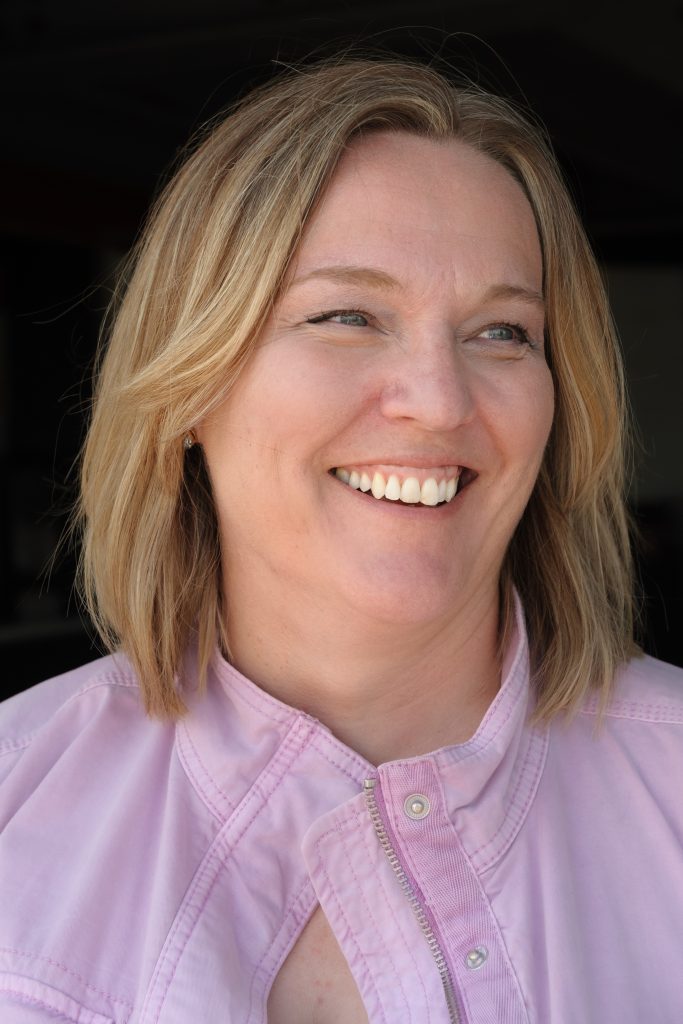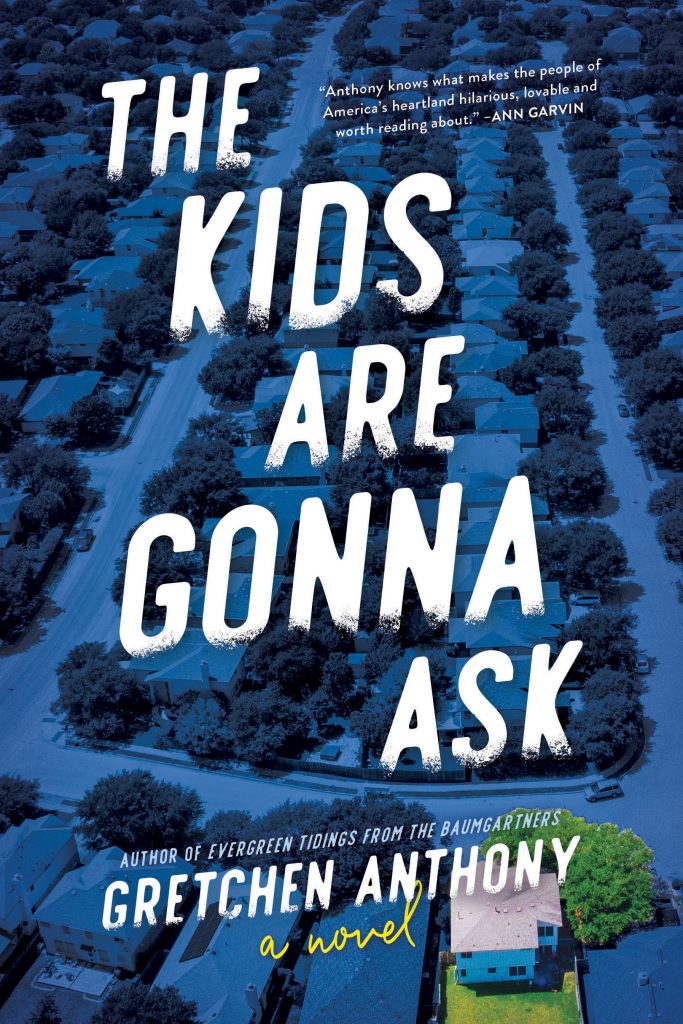

Gretchen is a vivacious and talented Twin Cities-based author. Her most recent novel, The Kids Are Gonna Ask, combines a heartwarming coming-of-age story with a page-turning mystery that unexpectedly generates national controversy. Her writing is fun and snappy, the characters possess a perfect balance of quirkiness and heart, and the plot touches on so many themes relevant to many of us, like family relationships and the cost of secrets. It also examines issues particular to this time in history, like the ability of social media to polarize, and the potential repercussions from our enhanced ability to look for our ancestors.
Gretchen was gracious enough to answer a few questions about writing and publishing, her new Audible Original, the Minnesota style of writing, the ability of provocative ideas to capture both attention and profits, and quirky characters and family secrets.
Have you always wanted to be a writer?
A part of me always has, yet I spent twenty-some years in corporate America because at the stage of life when I was choosing a career, I needed stability.
I don’t regret it. I was in change management, consulting, and corporate communications. It built my confidence and skills as writer and I gained a thick skin. Writing for teams and executives, you have to let go of your vanity pretty quickly. I’m so grateful for that experience.
The other thing that was serendipitous was how I grew to effectively mimic other voices, like the executives for whom I would ghost write. I realized after the fact that I was learning to write in character voices.
Where did you get idea for The Kids Are Gonna Ask?
The most honest answer is panic. I was 200 pages in to another book, and had been going back and forth with my editor. Finally, she said it wasn’t going to work. She was right, but I had a contract for a book due in May. This was January or February. (Note: Most fiction takes at least a year to write and edit!)
I needed to find another idea. So, I was procrastinating and watching television, when the shootings at Marjorie Stoneman Douglas High School occurred. Shortly after, the students took up the cause of gun control. Their message was ‘the adults are doing nothing for us, so we’re taking this back from you.’
Within days, the nation was in two camps. One said the students were heroes and should be supported. The other camp asked what gave the students the right and vilified these kids.
It struck me how society was beating up on them, on the heels of a life-altering tragedy. And I wondered what other topics could drive society to do that, in what otherwise would be someone’s private pain and decision.
One theme in The Kids Are Gonna Ask is the popularity of provocation. Can you talk about how issues that are polarizing tend to attract more interest?
We profit off it. The more we can get people worked up, the more money we can make. It’s a secret we all know–emotions lead to profit. We don’t buy anything we’re not emotionally primed to buy, including perspective. Gray isn’t emotional, so we make things that aren’t black and white, black and white.
At times, this can work for the better. I was watching a commercial for a drug to treat bipolar disorder and it struck me how the woman in the ad was a beautiful young mom trying to do everything perfectly. We often stereotype people with bipolar as crazy and disheveled, but she wasn’t. It was changing the stigma and I’m all for that.
The Kids Are Gonna Ask tackles a big family secret. Can family secrets ever be okay?
I tend to think of family secrets as ghosts that we live with, and that affect our subsequent behavior, the way we look at things, and our decisions. You’re either trying to protect the secret or justify it. But eventually, secrets come out. When they do, we see how they affected a person or encounter or event.
Do you have any plans for a sequel?
I don’t so far. However, I’m a big fan of having a universe of characters that walk in and out of my stories, kind of like a Marvel Universe. So I’m more likely to bring some of these characters into another book in sort of walk-on roles.
What are you working on now?
I just launched an Audible Original, Meditations with Miya Blue. It’s an upbeat, irreverent story of a wellness influencer living her best (sponsored) life. That is, until a very un-Zen series of events threatens to pull the thread of Miya’s calm and unravel her carefully woven world. It’s been a lot of fun.
My next book is also really fun. It’s about a uniquely quirky woman who, having spent most of her life running away from home and the shadow of her mother’s landmark Minneapolis bookstore, surprises herself by trying anything to save it.
Is there a Minnesota style of writing?
We’re very observant. You can go back F. Scott Fitzgerald, who brought out the details of characters. J. Ryan Stradal, author of The Lager Queen of Minnesota, also brings out telling details about people. Peter Geye, author of Northernmost, does it too. They take a deep look into both the quirkiness and the normalcy.
Who are some of your favorite authors?
Fredrik Backman (Britt-Marie was Here, Anxious People) writes quirky, prickly characters. Cathleen Schine wrote two of my favorite books, Fin & Lady and The New Yorkers. Michelle Gallen (Big Girl, Small Town) writes humor with heart. Abbi Waxman (Bookish Life of Ninah Hill, I Was Told This Would Get Easier) describes her books as interesting people coming together, and hijinks ensue. I’d agree.
Can you briefly describe writing routine?
Ideally, I write in the morning. The only thing that’s really standard is that I have a minimum number of words I have to write per day. When I’m working on a manuscript, my kids always ask if I got my words done that day.